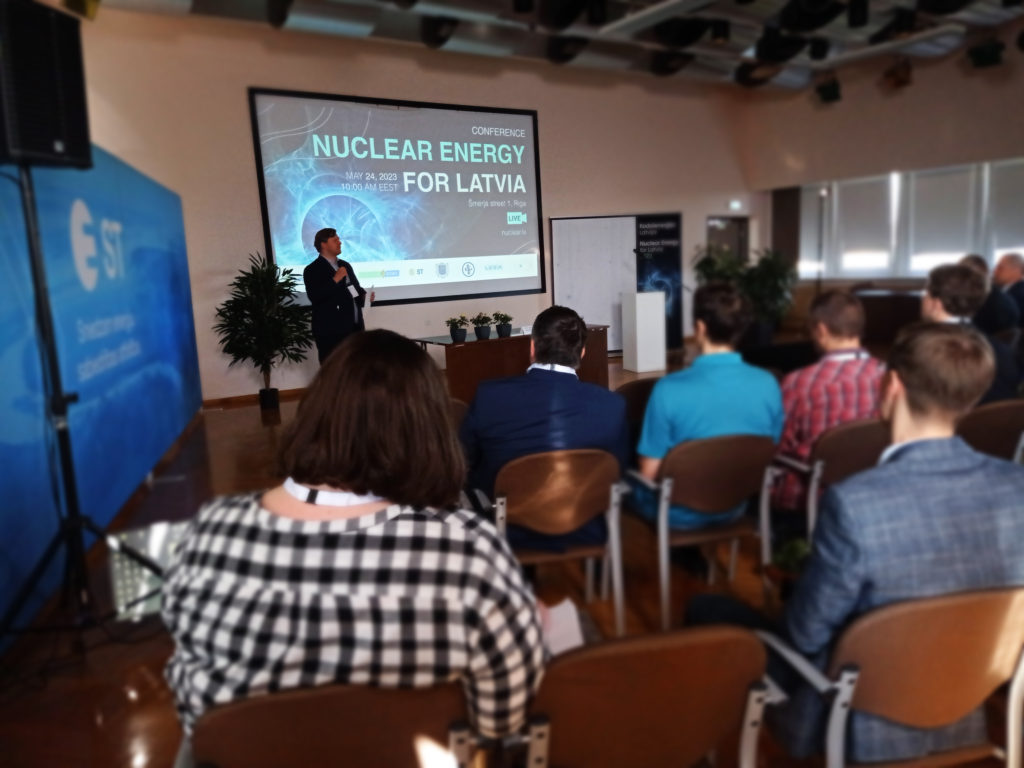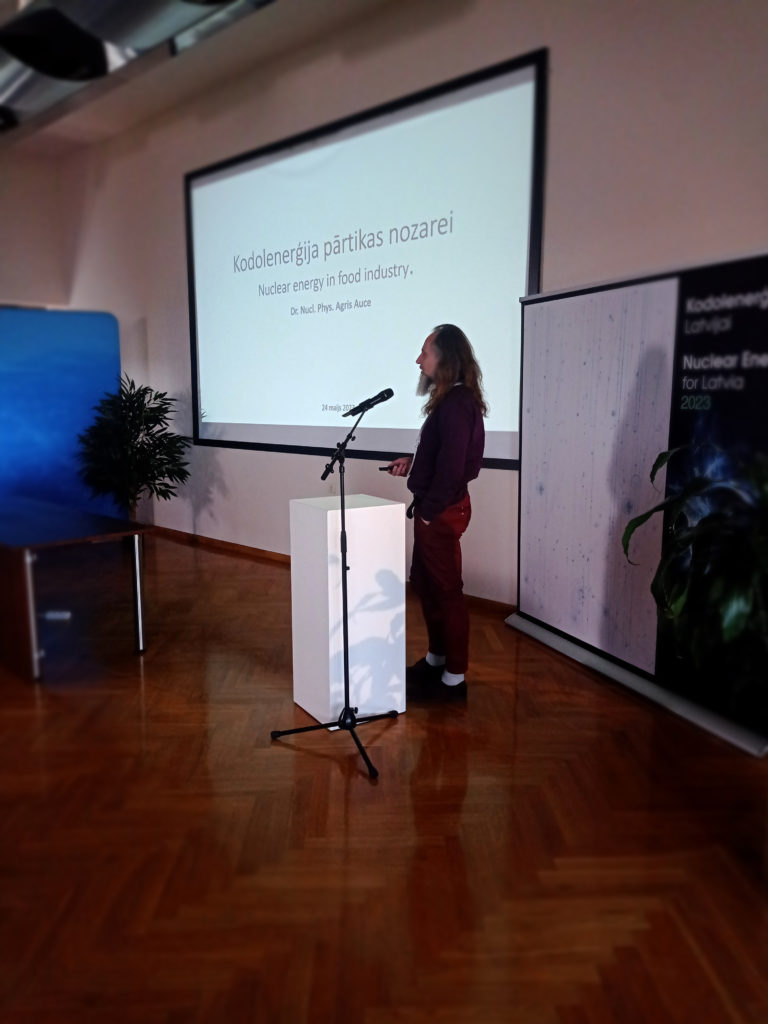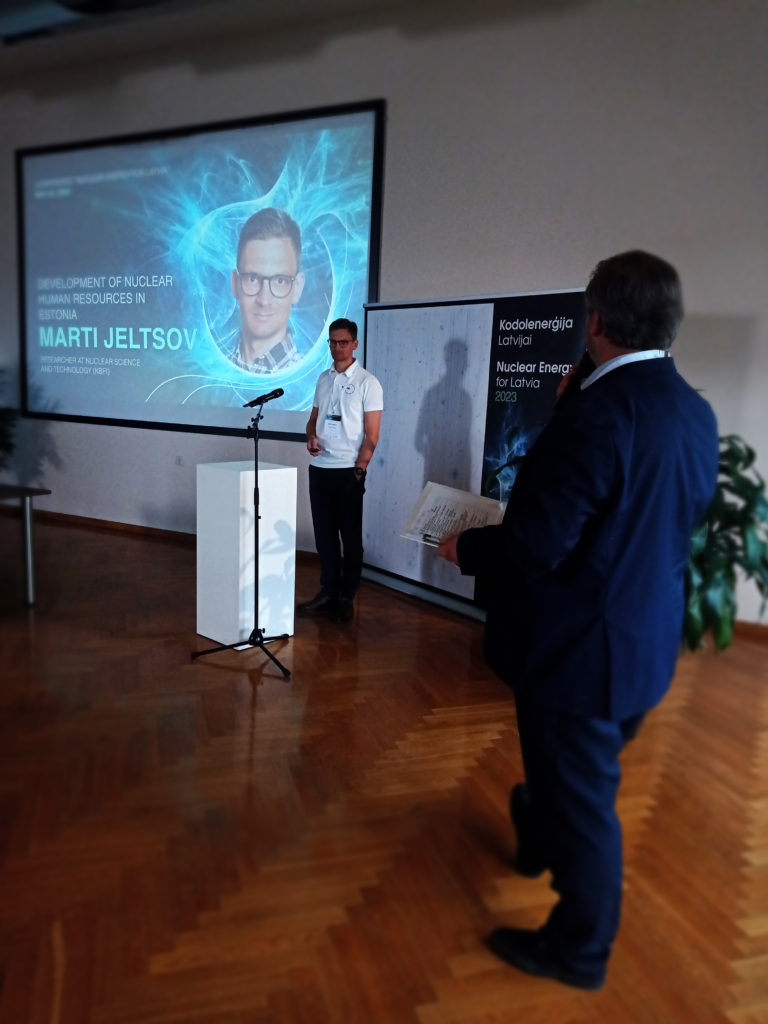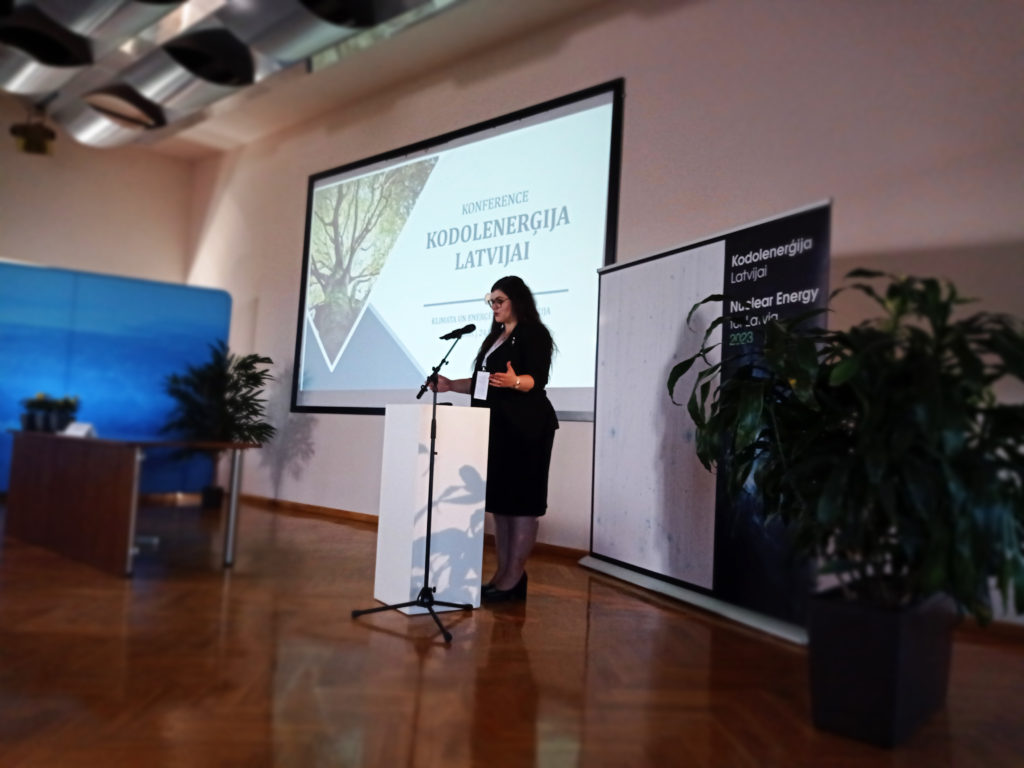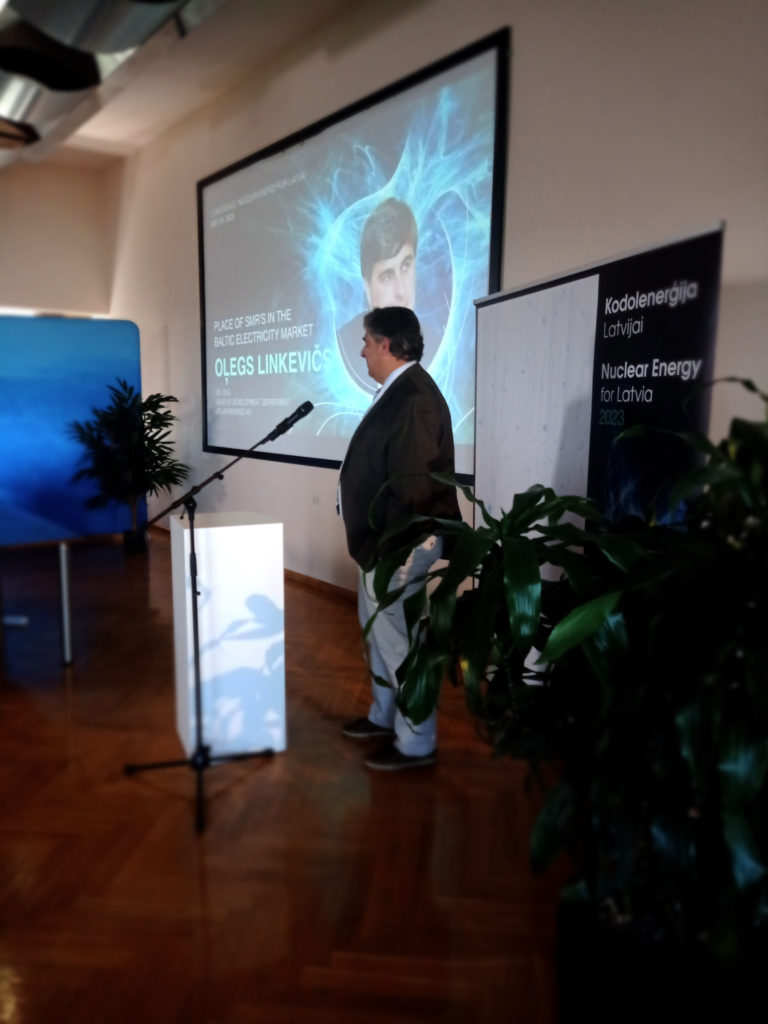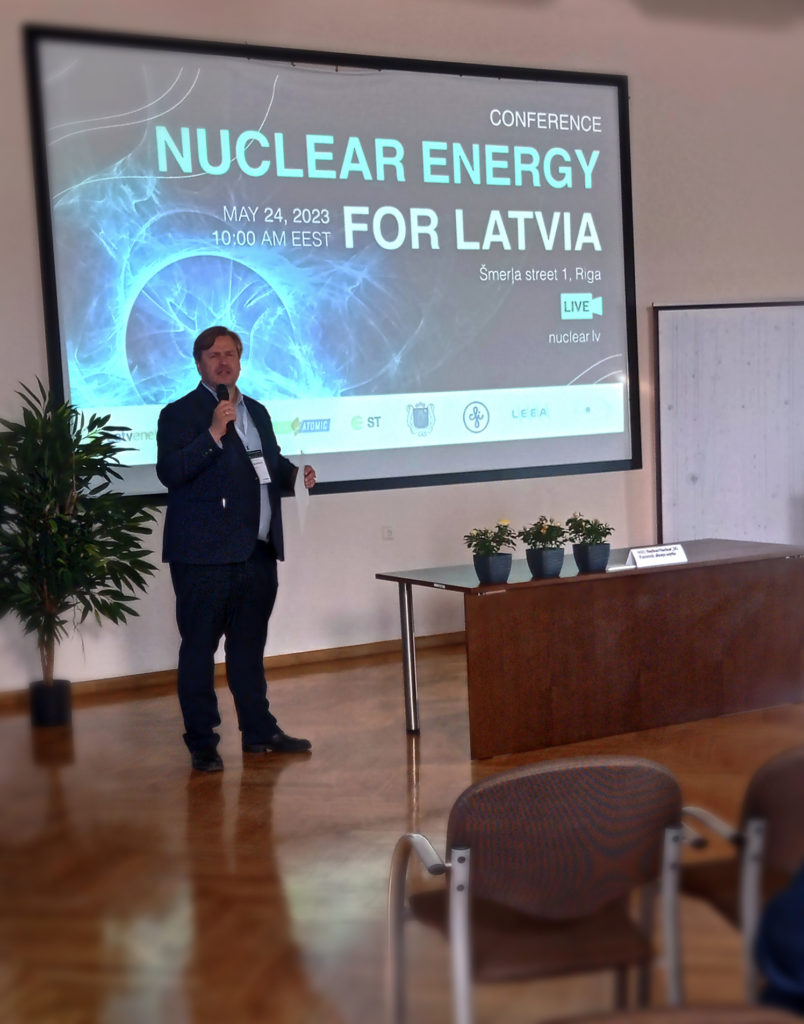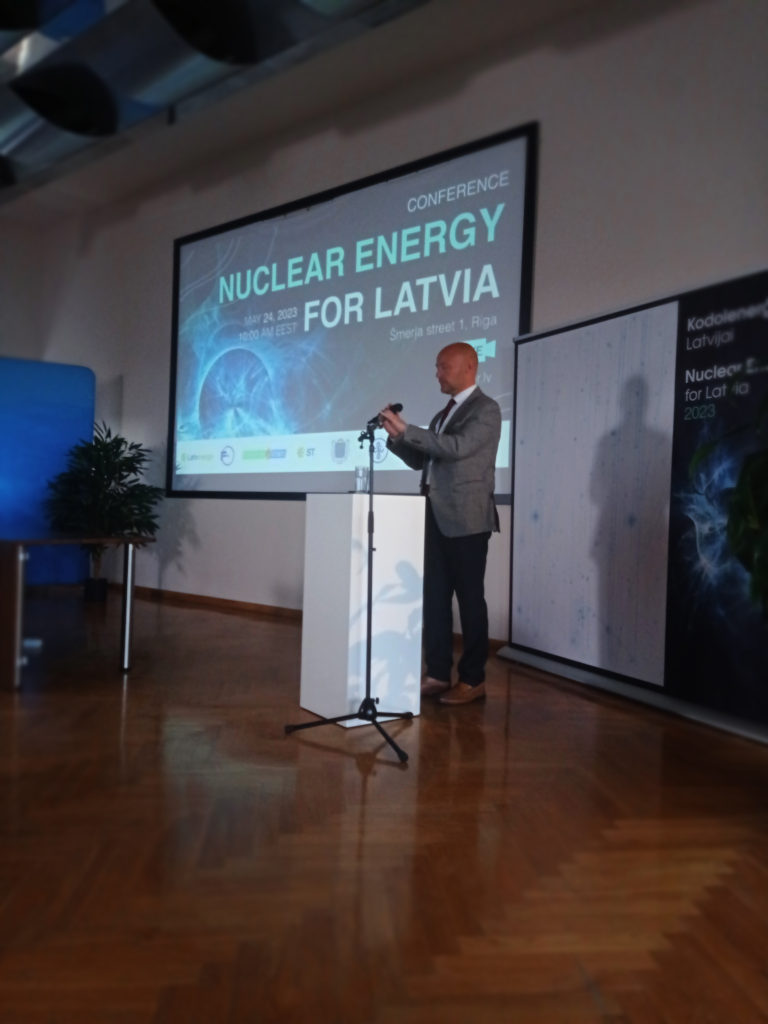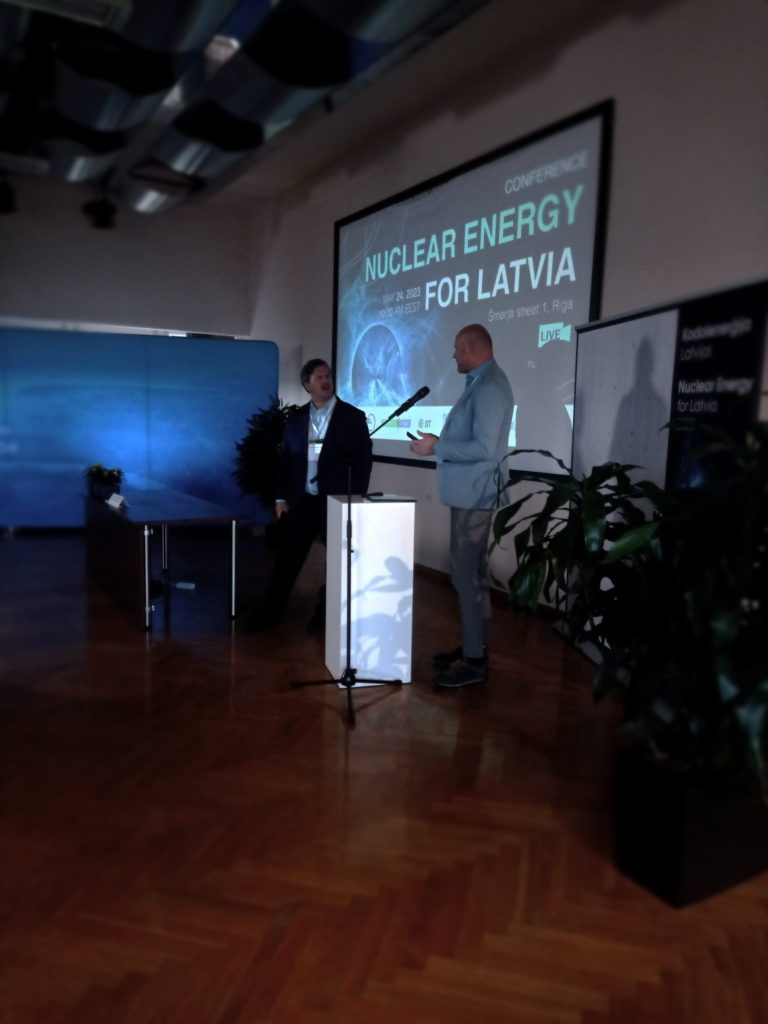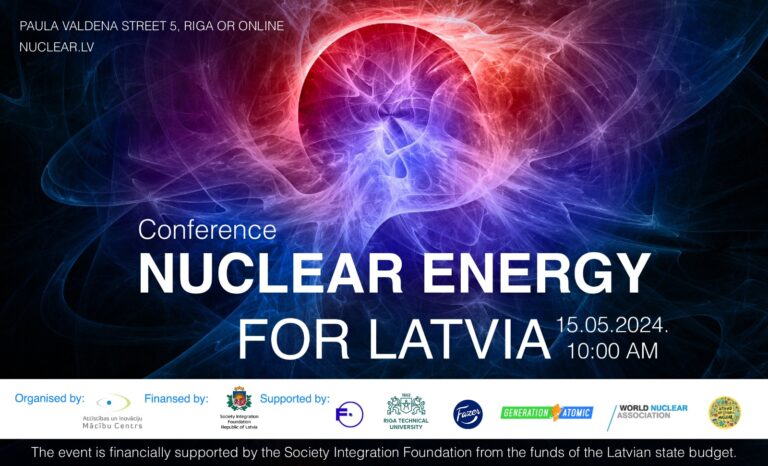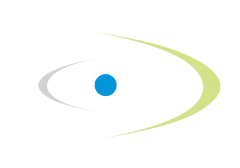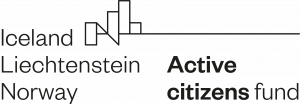The second international conference “Nuclear Energy for Latvia” took place on May 24, 2023.
The conference opened with Līga Kurevska, State Secretary of the Ministry of Climate and Energy. In the presentation the Secretary of State presented the development of the energy structure of the European Union over time and the projected global need for nuclear reactor capacities until 2050, as well as informed that the ministries responsible for energy in Latvia and Estonia are developing a vision for the role of nuclear energy in the energy system by the end of 2023.
Vice-president of the Latvian Academy of Sciences, deputy director of the Institute of Solid State Physics of the University of Latvia in scientific work, physicist Andris Šternbergs gave a scientist’s perspective on the worlds climate goals at the beginning of the conference, emphasizing the importance of the Sun as the main primary source of energy on the globe and marking the place of nuclear energy in Latvia’s overall energy balance.
CEO of Fermi Energia (Estonia), Kalev Kallemets, spoke about Estonia’s experience in the development of nuclear energy and presented regional data on electricity production and trade. Kalev Kallemets demonstrated wind and solar undersupply periods of up to 24 days, and also showed average fixed futures contract prices for these energy types that are 20-40% higher than Fermi Energia’s planned nuclear prices. In his presentation, he compared heating tariffs in the Baltics with the planned price of thermal energy of the nuclear reactor BWRX300, which is 3-4 times lower.
Oļegs Linkevičs, head of the research and development department of “Latvenergo”, talked about the modeling of the Latvian and Baltic electricity system in order to evaluate the increasing influence of wind and solar electricity on the network. He demonstrated the grid’s inability to accommodate planned solar and wind capacity and the need for H2 production and export from leftover electricity. He also showed the need for baseload power provision that could be fulfilled by nuclear power as well as the potential impact of H2 production on increasing the average load of NPPs.
Zion Lights, a climate activist from the United Kingdom, talked about her journey in climate activism to supporting nuclear power as the best and cleanest energy alternative available today to fight climate change. She spoke about people’s perception of energy and risks and her work in changing perceptions to promote an objective view of different energy sources.
Teollisuuden Voima (Finland) expert in energy and climate policy Juha Poikola talked about electricity consumption and production in Finland. He showed that the population’s support for nuclear energy is constantly growing and currently 68% of the population support it, while only 6% are against it. He presented the construction, operation and experience of the Olkiluoto nuclear reactors.
Anrī Leimanis, the deputy chairman of the board of RB Rail AS, emphasized the importance of a stable electricity supply and the fact that the Rail Baltic system will be one of the largest electricity consumers in the Baltics, with a projected consumption of about 3% of the entire region’s electricity consumption.
Nuclear science and technology researcher and representative of Fermi Energia (Estonia) Marti Yeltsov talked about the personnel required for Fermi Energia’s planned GE Hitachi BWRX300 nuclear reactor at three levels – nuclear reactor operator, monitoring organizations and technical support organizations. Time schedules for the training and preparation of such personnel were presented, as well as the need for cooperation with the IAEA (International Atomic Energy Agency).
Andris Kulbergs, chairman of Saeima’s National Economy, Agrarian, Environmental and Regional Policy Commission, Environment, Climate and Energy Subcommittee, talked about the initiative launched by Saeima, developing Latvia’s long-term energy strategy and the recently held Saeima Energy Forum. He pointed out the most important findings of the forum: energy is the backbone of the national economy, but Latvia lacks a long-term energy strategy; when implementing all the planned solar and wind energy sources, there will be an overproduction of electricity in favorable times, but the possibility of exporting it will be negligible, as it will be similar throughout the region; the issue of what will happen in adverse weather conditions is not sufficiently addressed; nuclear power ensures electricity availability and price stability regardless of weather conditions.
Gunārs Valdmanis, director of the Energy Market Department of the Ministry of Climate and Energy, outlined the main regulatory acts necessary for the nuclear energy industry in Latvia. He informed that systematic planning has not yet started in Latvia in order to identify all the necessary regulatory acts and the way to prepare them.
Agris Auce, coordinator of the nuclear fission projects of the University of Latvia, emphasized the importance of heat energy in CO2 emissions and industrial production. He showed the main technological breakthroughs in Small Modular Reactor (MMR) technologies, which allow planning that they will be essential in the future supply of thermal energy to industrial enterprises and cities. He briefly listed the most developed MMRs and presented to the conference participants how they could meet the energy needs of Latvian citizens and industry, creating future industrial production and greenhouse zones in Latvia. At the end of the presentation, he pointed out the main risks for nuclear energy in Latvia.
The conference was supported by: AS “Latvenergo”, “Fermi Energia” OÜ, AS “Sadales tīkls”, Latvian Association of Electric Power Engineers and Energy Builders, Latvian Academy of Sciences, non-profit organization “Generation Atomic”, international organization “World Nuclear Association”, international movement “Stand Up for Nuclear”, Institute of Solid State Physics of the University of Latvia, SIA “Odo”. The conference was organized by “Development and Innovation Training Center”.
Conference presentations and a video recording will be available on the website: https://nuclear.lv/
Additional information:
Ieva Vītoliņa, conference coordinator
Society “Development and Innovation Training Center”
Email: ieva.vitolina@gmail.com
Mobile phone: +371 29215073
